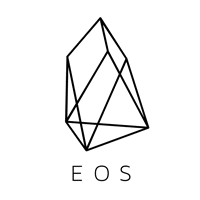Today, Brendan Blumer gave an interview at the 'Digital Live Design' conference in Munic.
Aside from explaining the fundamentals of the EOS.IO platform, he also touched on government regulation and how blockchain may influence existing governments.
When host, Christian Angermayer, gave an explanation about the EOS token sale, he noted:
"At the end of the token sale, most likely, block.one will have raised 6 to 8 billion dollar" [0:55]
Brendan did not respond directly to this projection, but clarified, that so far, block.one raised about 1.5 billion dollar.
What is Blockchain? [1:51]
Brendan explains blockchain as "the next iteration of the internet. A secure and mass scalable way of data transfer." He sees the utility of blockchain extending beyond the mere exchange of value, to eventually include all kind of content.
What is a token? [3:24]
"Tokens are just a unit of account. In reality it's anything. The EOS token is not just 'a new money', but rather a unit for account of the EOS community"
Why EOS? [4:14]
Brendan explains that Bitcoins' transactions are expensive and take a long time to confirm. While this may be acceptable for large monetary transactions it's not applicable to usecases such as time-stamping.
"Eos is a delegated proof of stake network that massively increases throughput."
Most importantly, EOS aligns the incentive between value producers and value extrators.
The future of Blockchain [7:15]
In general, Brendan observs a shift from resource intensive proof-of-work protocols to proof-of-stake systems. They are often faster and can handle more transactions easily.
Will centralized companies be disrupted? [9:20]
"I'm a big believer, that ultimately, the blockchain is empowering communities to disrupt the company.", Brendan states. "Over time these communities will start to pick off the largest tech organisations in the world. It's going to start with centralized technology platforms like facebook and Uber."
In 2018, Brendan sees the general focus shifting from Bitcoin, to decantralized autonomous cooporations.
How long will the blockchain revolution take? [11:30]
According to Brendan, blockchain is not a disruptive technology, that will replace everything fast. Rather, it is a fundamental technology, which requires everything to be rebuilt. He sees this to happening over the course of the next 10 to 20 years.
Where is the world going in terms of regulating blockchain? [13:57]
Brendan sees regulation as a sign of the industry maturing. As long as the regulation does not impede innovation he's not aversed to it. "Most regulators are pretty careful, and don't want to push all innovation off shore."
How will blockchain impact existing governments? [16:00]
"At the end of the day, a blockchain is a government system", Brendan explains. "I think we will see cryptocurrencies coexist with government fiat currencies. Fiat currencies will move onto the blockchain to take a lot of their advantages."
He also forsees, that blockchain will help governments to better negotiate monetary policies with their population.

nice sharing,,,good that eos coming,,@n3r0
thanks, definitely!
Everybody should do these summaries / chapters!
Well, yeah. Adding value is always better than merely reposting.
This post has received gratitude of 2.70 % from @appreciator thanks to: @n3r0.